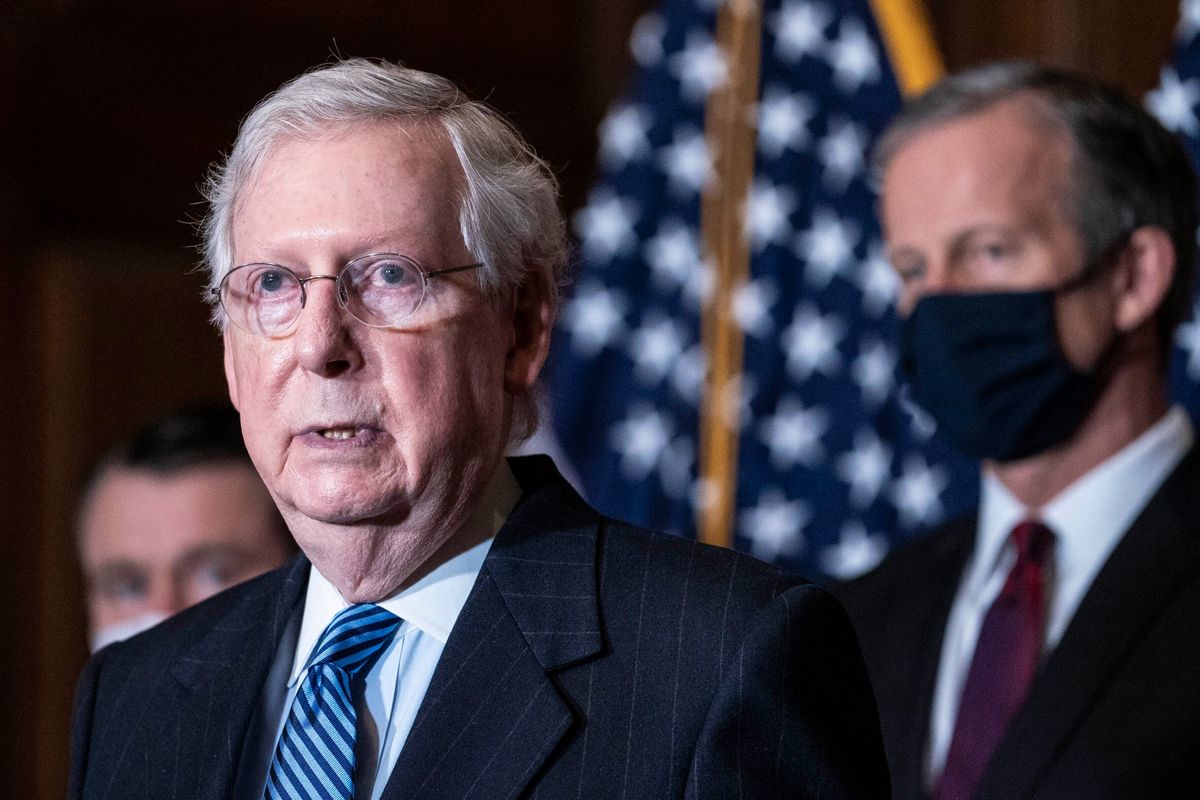McConnell rejects COVID-19 relief bill as House adjourns

A few minutes every morning is all you need.
Stay up to date on the world's Headlines and Human Stories. It's fun, it's factual, it's fluff-free.
On January 1, many of the protections and provisions in the previous stimulus bill will expire, ending both unemployment benefits to 12 million Americans and an eviction moratorium that could affect up to 30 million.
A second coronavirus relief bill proposing US$908 billion in federal aid and spearheaded by more than a dozen members of the House and Senate was shot down by Senate Majority Leader Mitch McConnell before the House adjourned until next week.
House Speaker Nancy Pelosi and Senate Minority Leader Chuck Schumer, who both support the relief bill, had previously urged McConnell to use the bill as a starting point for negotiations going forward.
With COVID-19 cases surging across the United States and the unemployment rate still high, there has been a renewed bipartisan urge to strike a deal in Congress after months of gridlock over what precise measures a second package should contain.
Negotiations in the past
Since the first relief bill was passed earlier in the year, Democrats and Republicans have been at odds over what exactly should be included in a second stimulus package.
Democrats have put forward a larger stimulus package, with Pelosi and Schumer previously supporting a US$2.2 trillion COVID relief bill. Both have advocated for expanded unemployment insurance as well as funding for state and local governments, including tribal communities and US territories. President-elect Joe Biden has also spoken out in favor of a second stimulus check.
Republicans, however, have supported a significantly smaller version of the bill, with McConnell saying that he would only support a bill that topped out at around US$500 billion. Republicans have also argued against extending unemployment benefits, saying that such benefits discourage people from returning to work. Republicans have instead advocated for providing businesses with liability protection from lawsuits brought by employees who contracted COVID-19 at work.
Both parties have agreed that a second relief bill is necessary for the well-being of Americans and that a second bill should include funding for vaccine development, testing, and treatment, as well as funding to help schools safely reopen.
Included in the bill
The US$908 billion relief proposal includes:
· Relief for small businesses, including US$300 billion for the Paycheck Protection Program. The bill would specifically give aid to those businesses hit the hardest by the pandemic, like restaurants and bars.
· Extended federal unemployment benefits after the CARES Act benefits expire on December 31 of this year. It would reduce unemployment benefits from US$600 to US$300 for an additional four months into the next year.
· Renewal of eviction moratoriums, banning landlords from evicting their tenants and providing tenants with rental assistance funding.
· Funding for coronavirus vaccination distribution, increased testing and better contact tracing.
· Temporary liability protection from coronavirus lawsuits, specifically aimed at narrowing the breadth of suits against businesses, schools and hospitals, except for instances of gross negligence. This would last for six months.
· Additional funding for child care and education.
· Funding for state and local governments, including tribal communities and US territories.
The bill does not include:
· A second stimulus check for individuals who qualify.
· A replacement for unemployment insurance, that gets rid of increased unemployment payments.
· Full liability protection for businesses, schools and hospitals that get sued by employees or visitors who contract the coronavirus while there.
Though the bill has yet to gain support from a majority of Republicans, it’s been presented as a bipartisan compromise.
“We and others will offer improvements,” Pelosi and Schumer said in a joint statement, “but the need to act is immediate and we believe that with good-faith negotiations we could come to an agreement.”
On January 1, many of the protections and provisions in the previous stimulus bill will expire, ending both unemployment benefits to 12 million Americans and an eviction moratorium that could affect up to 30 million. But, with the winter recess approaching, it’s looking increasingly likely that the bill may not be picked up until January, if not later.
That would be a dire outcome for the millions of Americans whose benefits are set to expire and would likely make the bill one of the first priorities of the incoming Biden administration.
Have a tip or story? Get in touch with our reporters at tips@themilsource.com




Comments ()